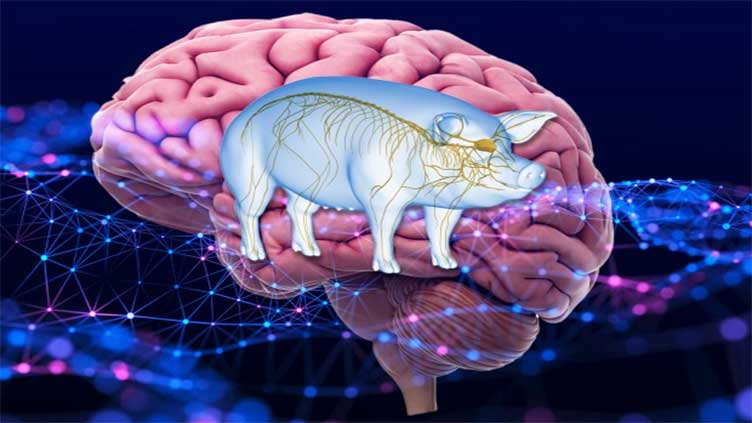Pig's brain back to life an hour after animal had died in experiment

Experiment aims to figure out how doctors can restore brain function
(Web Desk) - A pig's brain has been brought back to life, with functioning activity, nearly an hour after the animal had died.
The eerie experiment aims to figure out how doctors can restore brain function to a patient who has suffered a sudden cardiac arrest.
Sudden cardiac arrest stops blood flow from reaching the brain, which can cause serious, irreparable damage within minutes.
This is why the resuscitation window for a cardiac arrest is so short.
It is a problem known as ischemia, which means parts of the body aren't getting enough blood flow.
Scientists from the Sun Yat-Sen University in China suggest their recent findings could provide a brief window for successful resuscitation of a patient who's heart has failed.
Using 17 lab-raised Tibetan minipigs, the team found that pigs whose liver had not be subject to ischemia showed significantly less brain damage than the group that had.
Researchers then tried to incorporate an undamaged liver into the life support system of a brain that had been completely removed from a euthanised pig.
This life support system included an artificial heart and lungs to pump fluid through the brain.
Again, when a pig's liver was incorporated into the system, the brain was able to switch back on, and remain active for several hours.
The team connected brains to the liver-assisted system for intervals of 30, 50, 60 and 240 minutes.
Intervals of 50 minutes showed the most promise, and kept the brain active for up to six hours.
Interestingly, brains that had been deprived of oxygen for 60 minutes were only able to return for three hours before fading.
Systems without a liver saw electrical activity return to the brain within half an hour before declining over time.
Liver-free systems were not able to sustain brain activity for the same period of time.
The findings suggest the liver plays a critical role in stopping brain injury following cardiac arrest.
While this scenario is unlikely to be replicated for humans, it helps scientists understand how much time they might be able to sustain brain activity in patients experiencing heart failure.
Brain damage is the leading cause of death in patients who survive a cardiac arrest.


